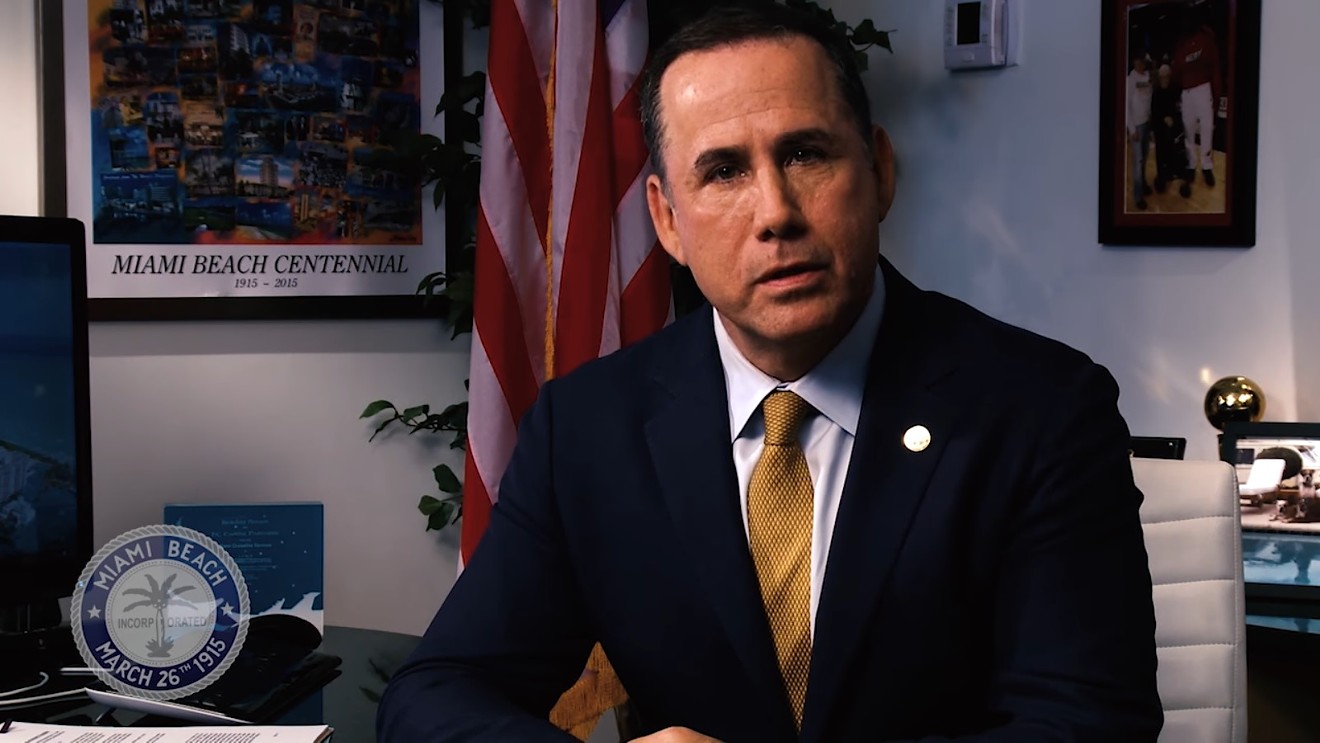Well, today the state won the first round in what will surely be a long legal fight over the wage hike. Circuit Court Judge Peter R. Lopez issued a ruling declaring Miami Beach's Living Wage Ordinance invalid, setting up an appeals fight that will likely end in the Florida Supreme Court.
"The city's wage ordinance is not valid under 218.077 Fla. Stat., which preempts local minimum wages," Lopez wrote in his decision.
The initial ruling is a blow to Levine's legacy as Beach mayor. Levine, more than any other city official, had pushed for the wage hike and subsequent battle with Tallahassee.
"While I am extremely disappointed in today's ruling against Florida families, we expected that this case would ultimately end up before the Florida Supreme Court," Levine said via email. "Our legal team is working on a swift appeal to ensure that the will of Floridians expressed through the 2004 state constitutional amendment on minimum wage is fully implemented."
Miami Beach's lead counsel, Robert Rosenwald, said the city will file an immediate appeal.
"The court simply got it wrong," Rosenwald said, adding that the decision is a "heartbreaking loss for all of us and for the people of the state of Florida but ultimately the policy of the people allowing higher local minimum wages will stand."
Had the law gone into effect, wages in the city would have risen to $10.31 per hour January 1, 2018, and then increased gradually until they hit $13.31 in 2021. Levine contended that a 2004 minimum-wage amendment to the state constitution protected cities' rights to raise or set their own minimum wages. The state disagreed and argues that 2004 amendment only let cities set minimum wages for government contractors.
One city commissioner, Kristen Rosen Gonzalez, told the conservative-leaning Sunshine State News that she thought Levine knowingly filed a bunk bill just to raise his public profile before running for governor. Levine, however, tells New Times it's the state that's costing taxpayers extra money.
"Moreover, it's a sad day when tax dollars are being used to fight against efforts that put working Floridians on a path to economic stability," he said. "The legal bills being racked up by the state, in conjunction with the Tallahassee insiders, will only add to the over $200 million already wasted on legal battles that pitted the government against the people."
Yesterday's order was also a huge victory for some of Florida's largest corporations, which were unapologetic in their attempts to kill an ordinance that would have forced them to pay their workers on the barrier island a living wage.
In December, the Florida Retail Federation, a coalition backed by major companies including CVS/Caremark, Disney, and Publix, sued Miami Beach to stop the law from taking effect:
The National Employment Law Project (NELP), a national workers' advocacy group, threw its support behind Miami Beach as legal challenges to the law mounted. The NELP, like most legal analysts, agrees that the fight will likely be settled by a Supreme Court ruling.
"Today’s decision ignores the fact that in 2004, Florida voters overwhelmingly approved a constitutional amendment that established a state minimum wage and granted cities the power to enact a higher minimum wage," the group said in a news release. "It is now up to the appellate court — and ultimately the Florida Supreme Court — to protect the will of Florida voters from corporate efforts to block any local minimum wage increase despite popular support and












